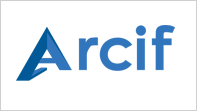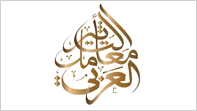Intellectual property rights for publishing materials intended for e-learning * Limitation of liability between the publisher and author *
DOI:
https://doi.org/10.51984/johs.v19i3.1210Keywords:
Copyright, publisher, Algerian legislationAbstract
Moral trade has come to occupy a significant place in the field of international relations, especially after the recognition of copyright by its universal nature, which makes it exist and be decided everywhere, therefore if the publication contract has the international characteristic as previously mentioned it was necessary to define the law that will govern it, as The publishing contract does not have a national dimension, but rather it has an international dimension, and this is because of the very important importance of ideas and information, especially in today's world, which has become based on e-learning and which is required by distance education, and since the basis of the relationship is the will of its parties according to the principle of the authority of the will, In this sense, Both jurisprudence and jurisprudence stipulate that the international contract is subject to the law chosen by the contracting parties, but it may happen that the parties remain silent in defining this law, so what is the solution or alternative to the law of will in this case ?, Also, the liberalization of international trade created a kind of rule The transboundary movement affected the international contract, so how does it resonate with the international contract, the subject of which is the exploitation of copyright. If the text of Article 84 of Ordinance 03-05 relating to Algerian copyright and related rights is defined, the publishing contract is defined as: “The publishing contract is the contract whereby the author assigns the publisher the right to reproduce many copies of the work according to agreed terms and in return for a reward for publishing it and distributing it to Audience for publisher account. " For this we raise the following problem in what is the responsibility and obligations that fall on the publisher in the scientific secretariat of the literature approved as references in e-learning?
Downloads
Downloads
Published
Issue
Section
License
Journal of Humanities Policy on Intellectual Property and Plagiarism
1. Commitment to Intellectual Property and Ethics
The Journal of Humanities (JOHS) is fully committed to respecting intellectual property rights and aims to protect the originality and authentic work of authors who submit their manuscripts for publication. The journal takes a firm stand against articles that contain any form of plagiarism and emphasizes the need for all researchers to adhere to the highest ethical standards in scientific research.
2. Anti-Plagiarism Policy
The journal considers plagiarism a serious violation of academic ethics. Therefore, authors must ensure that their work is original and not plagiarized, and that any use of external sources is properly cited and documented according to correct academic standards.
-
Actions Taken: In the event that any plagiarism or academic theft is discovered in a submitted article, the editorial board will contact the author to request a formal explanation within a maximum period of two weeks from the date of notification.
-
Investigation and Decision: After receiving the explanation, the article will be referred to the journal's specialized committees, which will investigate the matter and take the necessary measures, which may include the permanent rejection of the article and the imposition of disciplinary actions.
3. Publication License and Author Rights
The journal adopts the Creative Commons license type Attribution-NonCommercial-NoDerivs 4.0 International (CC BY-NC-ND 4.0), which allows for the following:
-
Attribution: Users are entitled to cite the content published in the journal and use it in their work, provided that the original source and author are clearly credited.
-
Non-Commercial: The published content may not be used for any commercial purpose.
-
NoDerivs: It is not permitted to make any modifications, distortions, or to build derivative works from the published content.
Under this license, authors are required to complete an exclusive license agreement for the journal. Authors retain the rights to their research data and may reuse and share their work for scientific purposes with proper citation.







